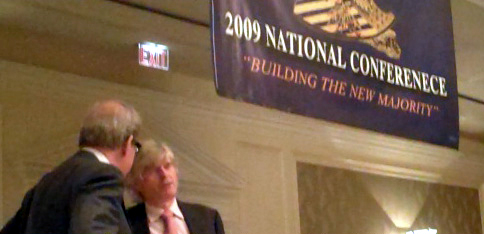OK, I give up. I admit that I was wrong. I thought that the grammatical term passive had developed a spectrum of everyday meanings like "vague about agency", "listless writing, lacking in vigor", and "failure to take sides in a conflict". But I've now reluctantly concluded that for some members of the chattering classes, it now means nothing at all, except maybe "I dislike this person".
The evidence that drove me over the edge? Hank Stuever and Wil Haygood, "Parsing The Book Of Mark", Washington Post, 6/25/2009:
Wow. Was that a press conference or was that a press conference? That genteel lilt of hubris, sorrow, guilt! But other than a very slow, meandering build to I just needed a little strange, what did it all mean? What language was South Carolina's Republican governor speaking yesterday as he forlornly told the world of his travels and travails, of how sorry he is to his wife, to his sons, to his staff, to "the Tom Davises of the world" (not the Virginia one, all the other ones)? Is it a new Pat Conroy novel? Is it a megachurch sermon? Is it the language of couples therapy? The metaphysics of Oprah? Shakespeare? The psychobabble of cheating husbands? (Note all the passive constructions, the avoidance of first person.) [emphasis added]
Read the rest of this entry »



 Usarufa is a
Usarufa is a